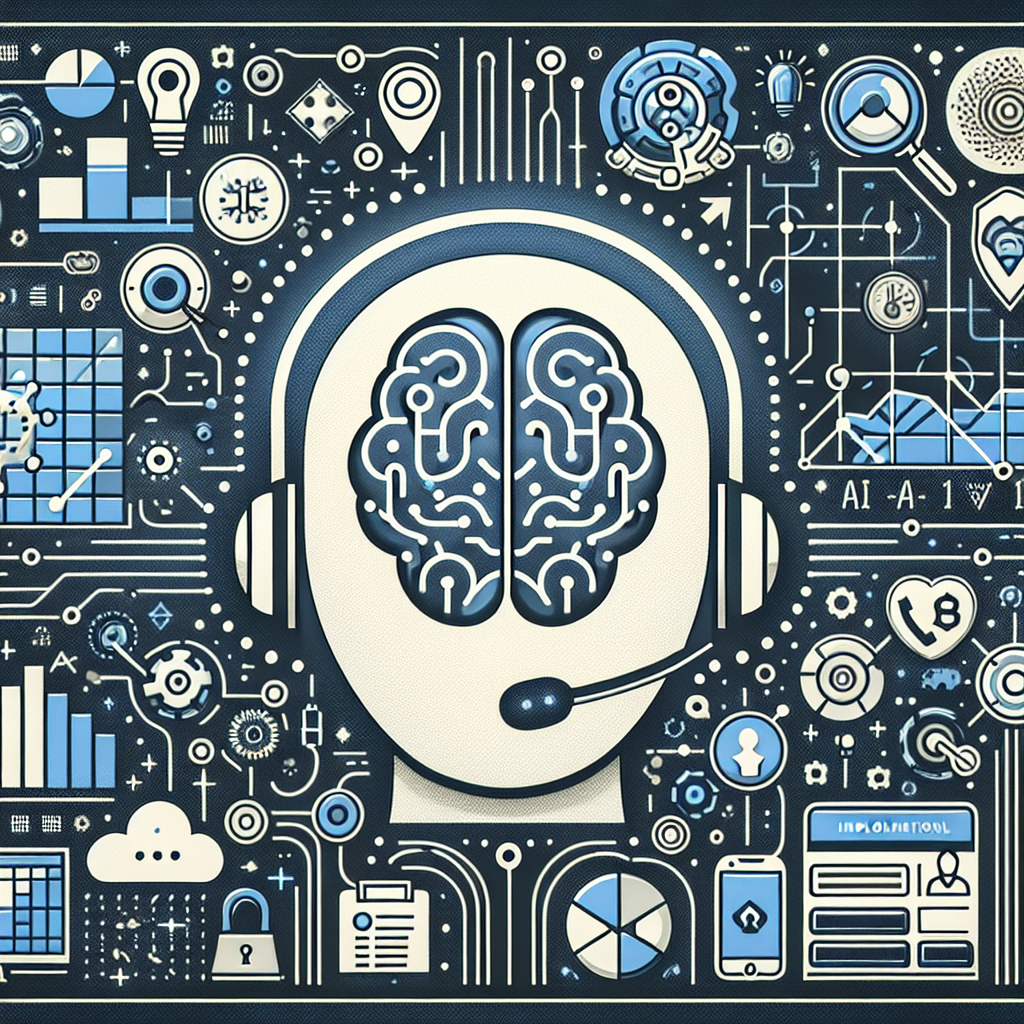Artificial Intelligence (AI) customer service is a rapidly growing trend in the business world. Companies are increasingly turning to AI technology to enhance their customer service operations, improve efficiency, and provide a better overall customer experience. However, implementing AI customer service is not without its challenges. There are key considerations that businesses need to take into account when integrating AI technology into their customer service processes.
Key Considerations for Implementing AI Customer Service
1. Define your objectives: Before implementing AI customer service, it is important to clearly define your objectives. What are the specific goals you hope to achieve with AI technology? Are you looking to improve response times, reduce costs, or enhance the customer experience? By clearly defining your objectives, you can better align your AI implementation with your overall business goals.
2. Choose the right AI technology: There are many different types of AI technology available for customer service, including chatbots, virtual assistants, and natural language processing systems. It is important to choose the right technology that best suits your business needs and customer service requirements. Consider factors such as scalability, customization options, and integration capabilities when selecting an AI solution.
3. Integrate AI with human agents: While AI technology can automate many customer service tasks, it is important to strike the right balance between automation and human interaction. By integrating AI with human agents, businesses can provide a more personalized and efficient customer service experience. Human agents can handle complex inquiries and provide emotional support, while AI can handle routine tasks and provide quick responses.
4. Train your AI system: Training your AI system is crucial for ensuring accuracy and efficiency. AI technology relies on data to learn and improve over time, so it is important to provide your AI system with the necessary training data and feedback. Regularly review and update your AI system to ensure it continues to meet your customer service needs.
5. Monitor performance and feedback: Once your AI system is up and running, it is important to monitor its performance and gather feedback from customers and agents. Analyze key performance metrics such as response times, resolution rates, and customer satisfaction scores to identify areas for improvement. Use customer feedback to make adjustments to your AI system and ensure it is meeting the needs of your customers.
6. Ensure data privacy and security: When implementing AI customer service, it is essential to prioritize data privacy and security. Ensure that your AI system complies with data protection regulations and industry standards. Implement robust security measures to protect customer data and prevent unauthorized access. Communicate clearly with customers about how their data is being used and ensure transparency in your AI processes.
7. Provide ongoing support and training: As AI technology evolves, it is important to provide ongoing support and training to your agents and customers. Keep your team updated on the latest AI developments and best practices. Offer training programs to help agents effectively work alongside AI technology and provide a seamless customer service experience.
FAQs
Q: What are the benefits of AI customer service?
A: AI customer service offers several benefits, including improved response times, increased efficiency, cost savings, and enhanced customer experience. AI technology can automate routine tasks, provide quick responses to inquiries, and personalize interactions with customers.
Q: How can AI technology enhance the customer experience?
A: AI technology can enhance the customer experience by providing personalized recommendations, predictive analytics, and 24/7 support. AI systems can analyze customer data to anticipate needs and preferences, leading to more tailored and relevant interactions.
Q: What are some common challenges with implementing AI customer service?
A: Some common challenges with implementing AI customer service include data privacy concerns, integration issues, training requirements, and ensuring accuracy and reliability. It is important for businesses to address these challenges proactively to ensure a successful AI implementation.
Q: How can businesses measure the effectiveness of AI customer service?
A: Businesses can measure the effectiveness of AI customer service by tracking key performance metrics such as response times, resolution rates, customer satisfaction scores, and agent productivity. Analyzing these metrics can help businesses identify areas for improvement and optimize their AI systems for better performance.
In conclusion, implementing AI customer service requires careful planning and consideration of key factors such as objectives, technology selection, integration with human agents, training, monitoring, data privacy, and ongoing support. By addressing these considerations proactively, businesses can successfully implement AI technology to enhance their customer service operations and provide a better overall customer experience.

